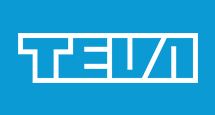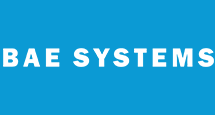Visiongain Publishes AI Applications in Nuclear Reactors Market Report 2023-2033
26 July 2023
Visiongain has published a new report entitled AI Applications in Nuclear Reactors Market Report 2023-2033: Forecasts by Design (Nuclear Reactor Core Design, Thermal-hydraulic Simulation Analysis, Radiation Shielding Design), by Systems (Anomaly Detection Systems, Predictive Maintenance Solutions, Real-time Monitoring and Alert Systems, Mitigation Strategies and Measures), by Optimisation (Fuel Consumption Optimisation, Reactor Operations Optimisation, Enhanced Energy Output and Efficiency, Decommissioning Processes Optimisation, Other), by Technology (Deep Learning (DL), Machine Learning (ML), Natural Language Processing (NLP), Reinforcement Learning (RL), Robotics and Automation, Other) AND Regional and Leading National Market Analysis PLUS Analysis of Leading Companies AND COVID-19 Impact and Recovery Pattern Analysis.
The global AI applications in nuclear reactors market was valued at US$571.0 million in 2022 and is projected to grow at a CAGR of 5.9% during the forecast period 2023-2033.
AI Plays a Pivotal Role in Enabling Remote Monitoring and Robotics in Nuclear Reactors
AI's role in enabling remote monitoring and robotics in nuclear reactors is transformative, offering enhanced safety, efficiency, and accessibility in reactor operations. This pivotal role is attributed to AI's ability to process vast amounts of data in real-time, make informed decisions, and execute tasks with precision and autonomy.
AI enables the integration of advanced sensors and monitoring systems within nuclear reactors. These sensors continuously collect data on various parameters, such as temperature, pressure, radiation levels, and coolant flow. AI algorithms analyze this real-time sensor data, providing operators with accurate and up-to-date information on the reactor's health and performance. Remote monitoring allows operators to assess reactor conditions from a centralized control room, minimizing the need for physical presence in high radiation areas.
How has COVID-19 had a significant negative impact on the AI Applications in Nuclear Reactors Market?
The COVID-19 pandemic has had a positive impact on the AI nuclear reactors market in several ways. Initially, the pandemic has highlighted the importance of ensuring uninterrupted and reliable energy supply, especially during times of crisis. Nuclear energy, with its stable and continuous power generation, has proven to be a valuable asset in maintaining critical infrastructure and supporting essential services.
Also, the pandemic has accelerated the adoption of digital technologies and automation across industries, including the nuclear sector. AI technologies have been leveraged to enhance the efficiency, safety, and resilience of nuclear reactors. With reduced human intervention and increased automation, the risk of virus transmission among operators and workers can be minimized.
Besides, the pandemic has increased the focus on remote monitoring, predictive maintenance, and optimization of energy systems. AI-powered solutions enable real-time monitoring and analysis of reactor performance, detecting anomalies and potential issues early on. This proactive approach helps prevent unplanned shutdowns, improve operational efficiency, and reduce maintenance costs.
In addition, the global economic slowdown caused by the pandemic has led to increased emphasis on cost savings and resource optimization. AI applications in nuclear reactors, such as fuel optimization, waste management, and operational efficiency improvements, contribute to reducing overall operational costs and enhancing the economic viability of nuclear power generation.
How will this Report Benefit you?
Visiongain’s 405-page report provides 138 tables and 188 charts/graphs. Our new study is suitable for anyone requiring commercial, in-depth analyses for the global AI applications in nuclear reactors market, along with detailed segment analysis in the market. Our new study will help you evaluate the overall global and regional market for AI Applications in Nuclear Reactors. Get financial analysis of the overall market and different segments including design, technology, systems, optimization, and capture higher market share. We believe that there are strong opportunities in this fast-growing AI applications in nuclear reactors market. See how to use the existing and upcoming opportunities in this market to gain revenue benefits in the near future. Moreover, the report will help you to improve your strategic decision-making, allowing you to frame growth strategies, reinforce the analysis of other market players, and maximise the productivity of the company.
What are the Current Market Drivers?
The Global Population Grows and Economies Expand, there Is a Rising Demand for Electricity
The global population continues to grow and economies expand, the demand for electricity is on the rise. This increasing demand poses a challenge for countries, particularly those with limited fossil fuel resources, to ensure a reliable and continuous supply of energy. In this context, nuclear power emerges as a viable solution. Nuclear reactors offer a consistent and dependable source of electricity generation, unaffected by external factors such as weather conditions or fuel availability. This reliability makes nuclear power attractive for meeting the rising electricity needs of countries, providing a stable and sustainable energy source to support economic growth and development. By harnessing the power of nuclear reactions, countries can effectively meet the surging electricity demands, ensuring a consistent supply to industries, homes, and infrastructure.
Advancements in Nuclear Reactor Technologies Such as AI Application have Improved Safety, Efficiency, and Operational Performance
Advancements in nuclear reactor technologies, particularly the integration of artificial intelligence (AI) applications, have significantly improved safety, efficiency, and operational performance. AI enables nuclear reactors to enhance their safety protocols by continuously monitoring and analysing vast amounts of data in real-time, detecting anomalies, and predicting potential issues before they escalate. This proactive approach to safety minimizes the risk of accidents and ensures the highest level of operational security. Additionally, AI algorithms optimize reactor performance by optimizing fuel usage, managing thermal efficiency, and reducing operational costs. By leveraging AI, nuclear reactors can achieve higher energy output, increased fuel efficiency, and extended operational lifetimes.
Where are the Market Opportunities?
The Integration of AI Technology in the Nuclear Industry Offers a Promising Pathway to Enhance Productivity
Serious radiation levels exist in core of reactor and other related hazards and in most cases restricting human access to facilities, even when human entry is possible, even though the risks can be significantly at low level of productivity. the limitations posed by serious radiation levels and other related hazards in nuclear reactors present a prime opportunity for the application of AI in the nuclear industry. The progress in robotic technology combined with AI capabilities offers significant potential for enhancing productivity and safety in various aspects of the nuclear industry, including fueling and waste management.
AI Technology in Nuclear Reactors Plays a Crucial Role in the Reduction of Greenhouse Gas Emissions
AI technology in nuclear reactors plays a crucial role in the reduction of greenhouse gas emissions. By optimizing the operation and efficiency of nuclear power plants, AI can help increase the share of clean energy in the overall energy mix, thus mitigating the environmental impact associated with carbon-intensive energy sources. AI algorithms can analyse data from various sensors and systems within the nuclear reactor to optimize energy generation and minimize energy wastage. By fine-tuning operational parameters, AI helps maximize the efficiency of the reactor, ensuring that more electricity is produced from a given amount of fuel. Furthermore, AI can analyse energy demand patterns, weather forecasts, and grid conditions to optimize load management strategies. By accurately predicting demand fluctuations, AI can optimize the reactor's power output to meet electricity needs, reducing the reliance on other carbon-intensive power sources during peak demand periods.
Competitive Landscape
The major players operating in the AI applications in nuclear reactors market are ABB Ltd, BWX Technologies, Inc., Framatome, GE Hitachi Nuclear Energy, General Electric Company, Honeywell International Inc., Kinectrics, Mitsubishi Heavy Industries Ltd, NuScale Power Corporation, Rolls-Royce Limited, Siemens Energy AG, SNC-Lavalin Group Inc., TerraPower, Terrestrial Energy, Toshiba Corporation, . These major players operating in this market have adopted various strategies comprising M&A, investment in R&D, collaborations, partnerships, regional business expansion, and new product launch.
Recent Developments
• 26 June 2023, In order to improve the effectiveness and dependability of monitoring and managing low-pressure combustion air and fuel gases, Honeywell has launched unveiled the DG Smart Sensor. With its precise monitoring capabilities and adoption of Industry 4.0-aligned digitalization trends, this product presents a chance to enhance combustion system performance and alter the operational dynamics for OEMs, end users, and system integrators.
• 09 May 2023, In order to continue working together to develop marine fuel cell solutions, GE Power Conversion and Nedstack Fuel Cell Technology have signed a contract. The deal is a continuation of a prior cooperative work agreement. A cruise provider's technical and financial assessment of decarbonization options benefited greatly from feasibility support from a pilot project for a large-scale maritime fuel cell application.
Notes for Editors
If you are interested in a more detailed overview of this report, please send an e-mail to contactus@visiongain.com or call +44 (0) 207 336 6100.
About Visiongain
Visiongain is one of the fastest-growing and most innovative independent media companies in Europe. Based in London, UK, Visiongain produces a host of business-to-business reports focusing on the automotive, aviation, chemicals, cyber, defence, energy, food & drink, materials, packaging, pharmaceutical and utilities sectors.
Visiongain publishes reports produced by analysts who are qualified experts in their field. Visiongain has firmly established itself as the first port of call for the business professional who needs independent, high-quality, original material to rely and depend on.
Recent News
Visiongain Publishes Carbon Capture Utilisation and Storage (CCUS) Market Report 2024-2034
The global carbon capture utilisation and storage (CCUS) market was valued at US$3.75 billion in 2023 and is projected to grow at a CAGR of 20.6% during the forecast period 2024-2034.
19 April 2024
Read
Visiongain Publishes Liquid Biofuels Market Report 2024-2034
The global Liquid Biofuels market was valued at US$90.7 billion in 2023 and is projected to grow at a CAGR of 6.7% during the forecast period 2024-2034.
03 April 2024
Read
Visiongain Publishes Hydrogen Generation Market Report 2024-2034
The global Hydrogen Generation market was valued at US$162.3 billion in 2023 and is projected to grow at a CAGR of 3.7% during the forecast period 2024-2034.
28 March 2024
Read
Visiongain Publishes Biofuel Industry Market Report 2024-2034
The global Biofuel Industry market was valued at US$123.2 billion in 2023 and is projected to grow at a CAGR of 7.6% during the forecast period 2024-2034.
















